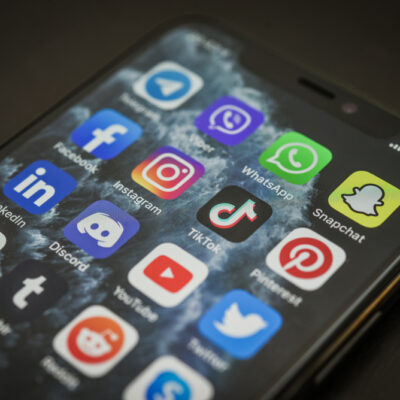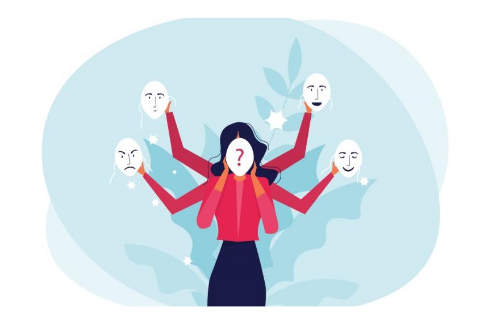By Then Jin Siong & Tee Chia En (BAC Apprentices)
We live in a modern age where the internet allows us to do practically everything online. Social media plays a huge part in our daily life, a means to reach friends, colleagues, and clients. Social media also overcomes geographic boundaries and time constraints, and allows users to choose whether to actively create content, disclose personal health information, post comments, or passively view content posted by others. No matter what you do on your phone, it is likely that social media is involved.

With social media playing a prominent role in most of our lives, could we be sacrificing our mental health?
- Comparisons to unrealistic portrayals
Social media profiles generally show the surface of one’s daily life. It can be a façade of what is real by portraying unrealistic expectations.
It is possible that learning from the experiences of others online may lead to unrealistic expectations and greater anxiety about one’s condition. However, research shows that many people who visit online networks are aware of the need to evaluate the suggestions and advice provided by others with caution, and to assess whether the information posted by others is applicable to their health concerns. Symptoms of depression, anxiety, loneliness, and low self-worth can be made worse as a result of social media usage because we are comparing ourselves to others.
There are also risks in obtaining advice from peers with unknown credentials. It is not always possible to confirm the reliability of what they say to each other online, and it is not clear how different content is perceived as trustworthy. Prior studies have shown that individuals can develop a dependency for online relationships, resulting in further challenges communicating in offline environments.

- Cyberbullying
Additional risks may include exposure to hostile or malicious comments posted by others, as well as online harassment such as cyberbullying. This takes place across every social media platform. Social media platforms can easily be hotspots for spreading rumors and abuse that can leave emotional scars.
The effects of cyberbullying can result in long-lasting scarring emotional effects because it is difficult to remove the content shared on social media. In addition, perpetrators take advantage of anonymous status to attack people online by posting malicious comments making it difficult to track the identity of the perpetrator. It can be avoided by just ignoring those comments either shutting it off or leaving the online group. But it is never easy for those seeking for help online and in return being cyberbullied.
However, just like anything else, social media is neither good nor bad.
There are also benefits of social media for your mental health.
Social media is a tool which can be used for good
Many people may not have the resources to seek professional help or perhaps are finding it difficult to speak to their loved ones in real life about their mental health issues. Being able to turn to social media can help them open up. It is recommended for people struggling with serious mental issues, to connect with similar individuals or groups, because this may contribute to better recovery, personal wellbeing, and social integration.
Through social media, people with serious mental illness can potentially identify similar individuals and groups at their own convenience whilst remaining anonymous. This helps them to avoid challenges associated with interpersonal deficits such as interpreting social cues or non-verbal communication. Compared with spontaneous face-to-face encounters, social media users have greater control in choosing their own level of engagement and to what extent they wish to interact with others. Social media may help them overcome debilitating effects of their illness such as information processing challenges, social anxiety, or difficulties with social interaction.
Studies have shown that being aware that there are others facing similar concerns can be highly reassuring and can create a sense of belonging to a group. Young adults with mental illness report that one of the primary reasons for connecting with others online is to feel less alone. Social media allows people with serious mental illness feel connected while gaining a sense of relief from knowing that others share similar experiences and challenges. Research also suggests that true self can be expressed more easily within online networks because the status of anonymity on the Internet can shield from disapproval or fear of making mistakes. Individuals with serious mental illness may benefit from interacting with others through social media because they can be themselves without letting the challenges of their illness get in the way.
Social media platforms like Instagram, Facebook and Twitter have given us opportunities to learn more about the world around us and when used in good faith, social media can be a useful addition in our social life.
Should you seek help in social media?
It all ultimately depends on what you seek to gain from social media. Individuals who are experiencing suicidal thoughts, hallucinations, disjointed reality, should seek help from a professional as they would have the necessary skill sets and expertise to diagnose the individual’s issues and provide a solution or prescription for the said individual. By resorting to social media, it may come to a point where issues like cyberbullying may come into play hence making it worse for the individual to cope with his/her issues which then would lead to a much negative outcome. Compared with those who want to seek companionship in a group to share about their issues or stories, social media is a good platform to seek for a support group. By having an online support group, it helps the individual to feel a sense of relief, assurance, and connection. Knowing that there are those out there facing similar experiences, one would be more comfortable without feeling alienated or judged.
The rise of social media plays a significant role in our lives today. But evidence also suggests that the use of social media is strongly associated with depression, anxiety, and loneliness. The question now arises whether such association is causal or just correlation, will need to be addressed through further research by various stakeholders in mental health and social media industries. What we can do on our part now is how can we manage its impact on our mental health wellbeing.



